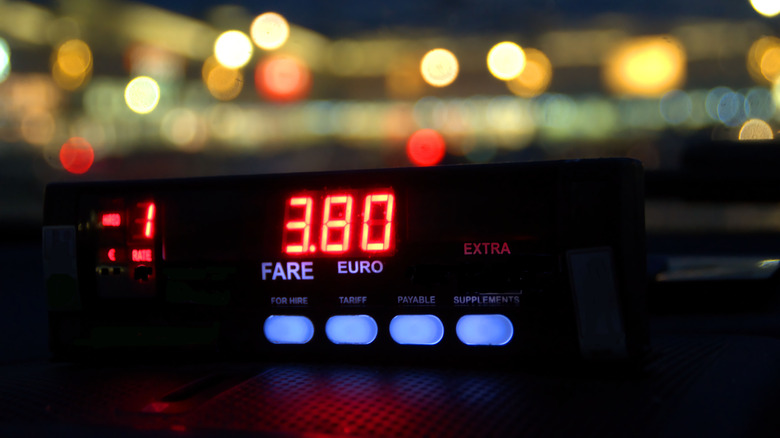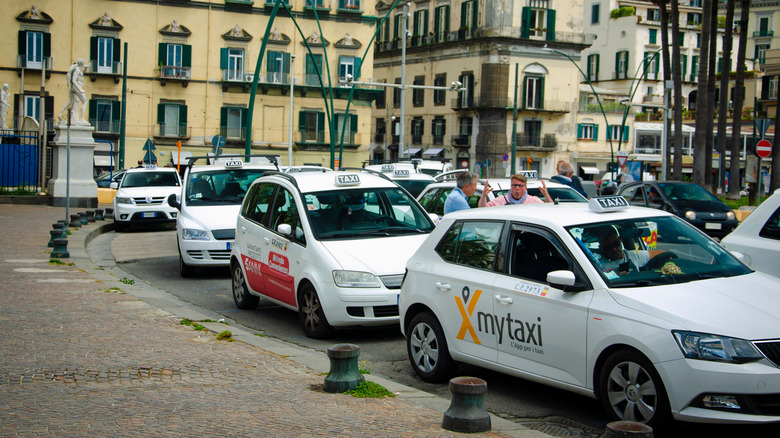Destinations Europe
Matt Berry
You shouldn’t be overly worried about scams when traveling, but there’s a stark difference between worry and prudence. In most cases, travelers enjoy safe, memorable, and scam-free experiences while exploring new destinations. However, tourist-directed scams do exist, and your best defense against these scams is two-fold. First, you need to be aware of the specific scam. Secondly, you should travel with a game plan to avoid them.
While pickpockets can be an issue in particularly popular destinations, taxi scams are prevalent throughout Europe. Again, you don’t need to be overly suspicious of taxi drivers in Europe, as most are honest professionals just making a living, but there are some people who specialize in taking unsuspecting tourists “for a ride.”
If you’re planning an upcoming trip to Europe, you should be aware of common taxi scams. From taxi meter “malfunctions” to taking “scenic routes” to pump the fare, taxi scams come in a few different forms. Fortunately, they’re typically easy to spot and, perhaps more importantly, easy to avoid altogether.
Beware of faulty meter scams

Frank Brennan/Getty Images
Scam cabbies tend to hang around places where other cabs congregate. Obviously, this includes major transport hubs, such as train stations and airports, where tourists are likely to be. If you’ve just landed in a new place, you may find it difficult to decipher between regulated, above-board taxi companies and fraudulent cabbies. And that’s one reason tourists can be susceptible to taxi scams.
One of the most common tourist scams concerns “faulty” meters. Once you’re inside a cab, you may notice the meter jumping or seemingly charging a rate higher than you’d expect. In many Western European countries, legitimate cabs are regulated by governmental agencies, and the meters are tamper-proof. However, dishonest cabbies may try to charge a higher nightly or weekend rate instead of a cheaper day rate.
To avoid any arguments regarding the price upon arrival, simply ask for a price estimate before taking the cab. Legitimate cabs shouldn’t have any problem offering an estimate. In fact, most cabs actually display and advertise price estimates of standard routes. This is particularly true for cabs that commonly service airports. There’s one stipulation to watch out for when asking for a price estimate, however.
Upon arrival at your destination, a driver may insist the estimated (or listed) price was actually per person versus the total fare, so ask about this before riding. If you “out” a scam cabby on the onset, they’ll probably refuse the ride, and you’ll be better for it.
Always choose well-marked cabs

Tetiana Tychynska/Shutterstock
Other scams typically revolve around nightlife situations. If you’ve been out and had a few, a dishonest cab may try to give you incorrect change or insist that you gave them a smaller note than you did. To avoid this argument, simply carry smaller bills to pay with. However, the very best way to avoid these seedier types of scams is to always — we repeat, always — choose well-marked cabs with company logos and telephone numbers prominently displayed. Fraudulent cabbies tend to drive unmarked vehicles with fake taxi lights they can easily take on and off. You can usually avoid these types of cabs by simply asking the hotel, restaurant, or bar to call you a ride.
Another scam concerns taking longer-than-needed routes to artificially inflate the fare. Although it can still happen, this particular scam isn’t as common as it used to be. Since most of us can access GPS routes on our phones and legitimate cabbies utilize the same technology, this scam isn’t very effective. So before you unfairly accuse your driver of inflating your fare, keep in mind that European cities are typically less driver-friendly than U.S. cities, with plenty of one-way streets and pedestrian zones. Remember, most cab drivers in Europe have no intention to scam you, and there’s a difference between worry and prudence.

